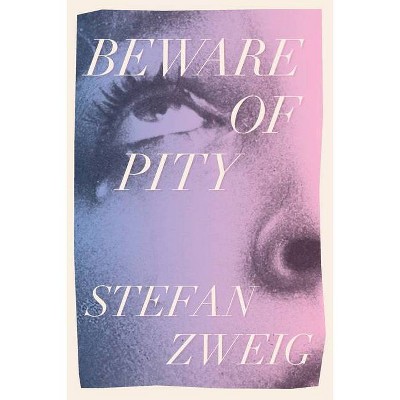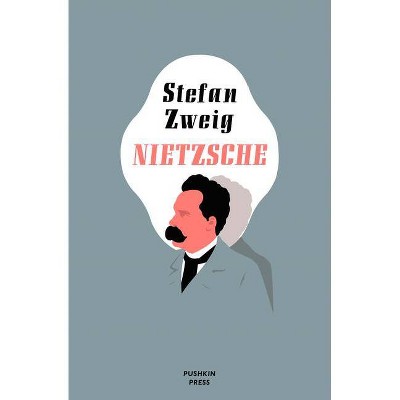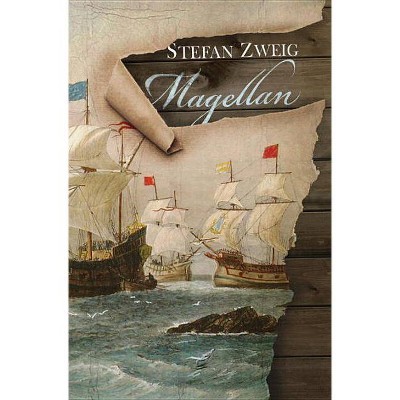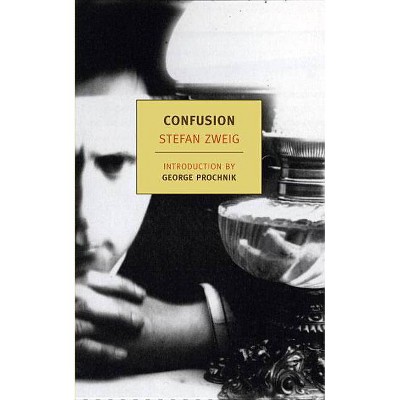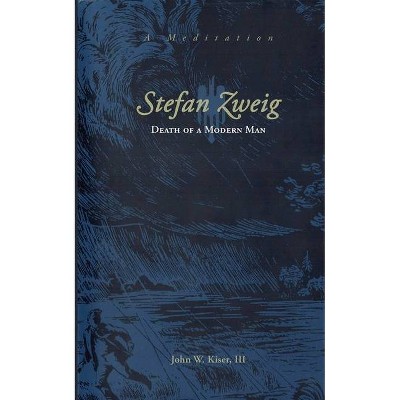Beware of Pity - by Stefan Zweig (Paperback)
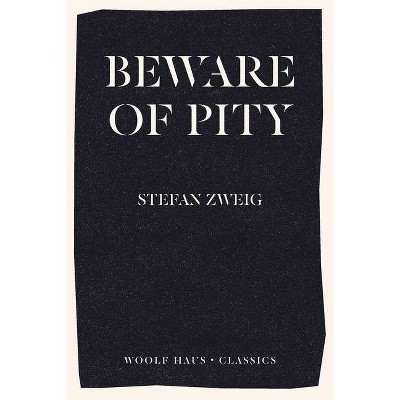
Similar Products
Products of same category from the store
AllProduct info
<p/><br></br><p><b> About the Book </b></p></br></br>"Stefan Zweig's brilliant novel, Beware of Pity, is an original and powerful work." The New York Times Stefan Zweig was a master anatomist of the deceitful heart, and Beware of Pity uncovers the seed of selfishness within even the finest of feelings. An almost unbearably tense and powerful tale of unrequited love and the danger of pity.<p/><br></br><p><b> Book Synopsis </b></p></br></br><p><strong>"Stefan Zweig's brilliant novel, <em>Beware of Pity</em>, is an original and powerful work."--<em>The New York Times</em></strong></p><p>The great Austrian writer Stefan Zweig was a master anatomist of the deceitful heart, and <em>Beware of Pity</em>, the only novel he published during his lifetime, uncovers the seed of selfishness within even the finest of feelings. <em>Beware of Pity</em> is an almost unbearably tense and powerful tale of unrequited love and the danger of pity. </p><p>In 1913, Hofmiller, an Austro-Hungarian cavalry officer stationed at the edge of the empire, is invited to a party at the home of a rich local landowner, a world away from the dreary routine of the barracks. The surroundings are glamorous, wine flows freely, and the exhilarated young Hofmiller asks his host's lovely daughter for a dance, only to discover that sickness has left her painfully crippled. It is a minor blunder that will destroy his life, as pity and guilt gradually implicate him in a well-meaning but tragically wrongheaded plot to restore the unhappy invalid to health.</p><p>Stefan Zweig's only novel is a devastating depiction of the torment of the betrayal of both honour and love, realised against the background of the disintegration of the Austro-Hungarian Empire.</p><p>'The novel I'll really remember reading this year is Stefan Zweig's frighteningly gripping <em>Beware of Pity</em>, first published in 1939 ... an intoxicating, morally shaking read about human responsibilities and a real reminder of what fiction can do best' -<em>Times Literary Supplement</em></p><p><strong>About the author</strong></p><p>Stefan Zweig (1881--1942) was an Austrian novelist, poet, playwright and biographer. Born into an Austrian-Jewish family in 1881, he became a leading figure in Vienna's cultural world and was famed for his gripping novellas and biographies. At the height of his literary career, in the 1920s and 1930s, he was one of the most popular writers in the world: extremely popular in the United States, South America and Europe - he remains so in continental Europe - however, he was largely ignored by the British public.</p><p>Zweig is best known for his novellas (notably <em>The Burning Secret</em>, <em>The Royal Game</em>, <em>Amok</em>, and <em>Letter from an Unknown Woman</em>; novels (<em>Beware of Pity</em>, <em>Confusion</em>, and the posthumously published <em>The Post Office Girl</em>); and his vivid psychological biographical essays on famous writers and thinkers such as Erasmus, Tolstoy, Balzac, Stendhal, Nietzsche, Dostoevsky, Dickens, Freud and Mesmer.</p><p>In 1934, with the rise of Nazism, Zweig fled from Salzburg to London, then to New York, and finally to Brazil. Zweig's memoir, <em>The World of Yesterday</em>, was completed in 1942, one day before Zweig and his second wife were found dead, following an apparent double suicide.</p><p/><br></br><p><b> Review Quotes </b></p></br></br><br><p>"Rich, exotic and fragrant--to be savoured to the last drop ... such a source of rare, unmixed pleasure deserves to be hoarded and treasured." -- <em>London Review of Books</em></p><p>"Powerful and laden with human truths that are universal" -- <em>Publishers Weekly</em></p><p>"<em>Beware of Pity</em> is the most exciting book I have ever read ... a feverish, fascinating novel" -- <em>Sunday Telegraph</em></p><p>"An unremittingly tense parable about emotional blackmail, this is a book which turns every reader into a fanatic" -- <em>Intelligent Life</em> (<em>The Economist</em>)</p><p>"Zweig relishes both the tumult of feeling and the way that even the most inchoate emotions, seen from the outside, tend to form a pattern." -- <em>The New Yorker</em></p><p>"Breathtaking." -- <em>The Guardian</em></p><p>"Zweig is the most adult of writers; civilised, urbane, but never jaded or cynical; a realist who none the less believed in the possibility--the necessity--of empathy." -- <em>Independent</em></p><p>"I more or less by chance bought a copy of <em>Beware of Pity</em>. I immediately loved this book ... and suddenly there were dozens more in front of me waiting to read." -- Wes Anderson</p><p>"Zweig belongs with three very different masters who each perfected the challenging art of the short story and the novella: Maupassant, Turgenev and Chekhov." -- Paul Bailey</p><p>"One hardly knows where to begin in praising Zweig's work."-- Ali Smith, <em>TLS Book of the Year 2008</em></p><p>"The novel I'll really remember reading this year is Stefan Zweig's frighteningly gripping <em>Beware of Pity</em>, first published in 1939 ... an intoxicating, morally shaking read about human responsibilities and a real reminder of what fiction can do best" -- <em>Times Literary Supplement</em></p><p>"Stefan Zweig's brilliant novel, <em>Beware of Pity</em>, is an original and powerful work." -- <em>The New York Times</em></p><p>"Stefan Zweig's time of oblivion is over for good ... it's good to have him back." -- Salman Rushdie, <em>The New York Times</em></p><p>"<em>Beware of Pity</em> has moments of high melodrama that have the power to make one put one's free hand over one's mouth as one reads - a very necessary process, and the stripping away of illusions was, after all, one of the abiding aims of the Freudian project. And it is a very useful kind of bildungsroman, in which it is not only the chief character who learns something by the end of it, but the reader, too." -- <em>The Guardian</em></p><p>"Zweig constructs a devastating account of what happens when pity is misconstrued as love and brilliantly relays the catastrophic effects of arousing unwanted passion." -- <em>The Guardian</em> (UK)</p><br>
Price History
Price Archive shows prices from various stores, lets you see history and find the cheapest. There is no actual sale on the website. For all support, inquiry and suggestion messages communication@pricearchive.us
